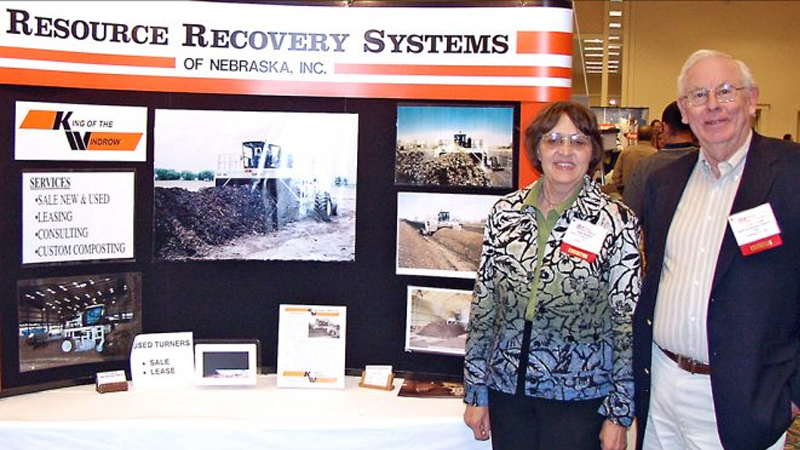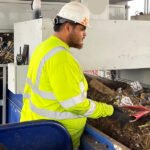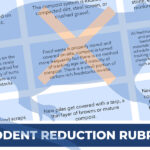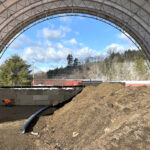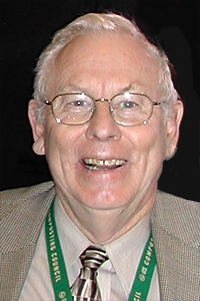
Les Kuhlman
Les introduced his compost turner — branded as King of the Windrow — in 1975. His company, Resource Recovery Systems International (RRSI), had its origins in the agricultural market, where he already was working as a composting consultant to feedlots and other animal agricultural operations. Born in 1935, Les received a BS in Animal Science from Iowa State University, and an MS in Animal Nutrition and a PhD in Biochemistry from Oklahoma State University.
RRSI was an early exhibitor at BioCycle Conferences, starting in 1977 at the Seventh Annual Composting and Waste Recycling Conference in Amherst, Massachusetts. The next year, at the Eighth Annual Conference in Omaha, Nebraska, is where Stan Brown of Brown Bear Corporation traces back his earliest memory of Les. “The Omaha conference is where I met Les,” he recalls. “There was another player then, the Cobey Composter. There weren’t many of us exhibitors there — about 5 or 6 sounds about right. We were there because we had been working with Dr. Leon Chesnin out of the University of Nebraska Lincoln agronomy department in providing a Brown Bear machine for his composting research in the summers of 1977 and 1978. Dr. Chesnin was the one who knew about the conference and said we should attend. RRSI and Brown Bear were competitors of sorts, as we both sold to the feedlots. But Les was always a perfect gentleman and a great guy.”
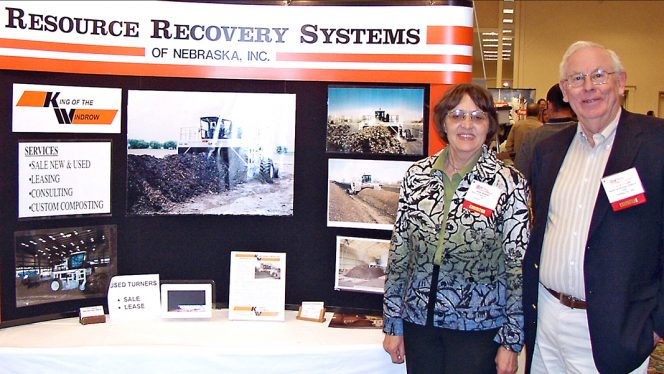
JoAnn Kuhlman and Les Kuhlman at the Resource Recovery Systems International booth at BioCycle West Coast Conference 2009.
Brown adds that there was also a personal connection, as Les’ wife, JoAnn, was from Shenandoah, Iowa (home of the Everly Brothers), about 40 miles from where he grew up. “That was always a big connection for us,” notes Brown. “My brother and I had a rock ‘n roll band and we would play in Shenandoah, and JoAnn and I would always exchange stories.”
Les’ compost consulting and equipment sales took him all over the world. BioCycle wrote about a composting project in 2010 in Cairo, Egypt that was composting biosolids mixed with shredded rice straw and composted in open windrows for six to eight weeks. After the windrow phase, the compost was placed in curing piles, screened and bagged. The common practice in Egypt at the time, explained Les, was to burn rice straw, which caused considerable air pollution during the season of rice straw burning. “This will likely lead to a ban on this practice,” he told BioCycle. “Incorporating rice straw in the composting process is seen as an excellent way to utilize large amounts of straw and reduce air pollution.” The article noted that RRSI was also involved in the manufacture of windrow turners in Egypt. It supplied component parts to an Egyptian company that built the frame and assembled the turners. In 2010, the partnership had completed 20 turners used for composting MSW throughout Egypt. The last time we saw Les, at the US Composting Council annual conference in January 2020, he had just returned from a trip to Egypt.
We wish the Kuhlman family our sincere condolences. And to Les, we raise our glass to the king of the windrow, a man who always shared his knowledge and his kindness.


